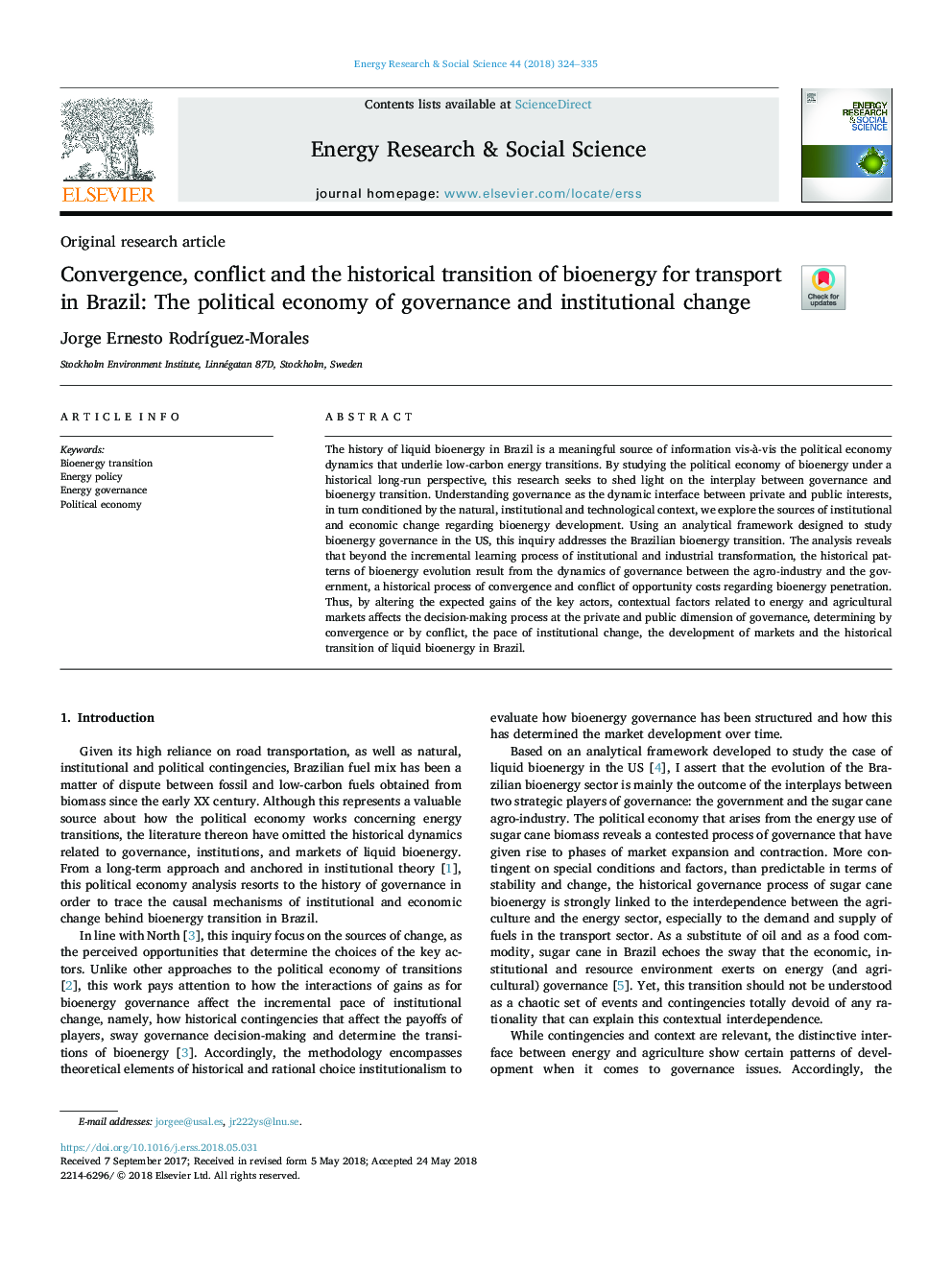| Article ID | Journal | Published Year | Pages | File Type |
|---|---|---|---|---|
| 6557196 | Energy Research & Social Science | 2018 | 12 Pages |
Abstract
The history of liquid bioenergy in Brazil is a meaningful source of information vis-Ã -vis the political economy dynamics that underlie low-carbon energy transitions. By studying the political economy of bioenergy under a historical long-run perspective, this research seeks to shed light on the interplay between governance and bioenergy transition. Understanding governance as the dynamic interface between private and public interests, in turn conditioned by the natural, institutional and technological context, we explore the sources of institutional and economic change regarding bioenergy development. Using an analytical framework designed to study bioenergy governance in the US, this inquiry addresses the Brazilian bioenergy transition. The analysis reveals that beyond the incremental learning process of institutional and industrial transformation, the historical patterns of bioenergy evolution result from the dynamics of governance between the agro-industry and the government, a historical process of convergence and conflict of opportunity costs regarding bioenergy penetration. Thus, by altering the expected gains of the key actors, contextual factors related to energy and agricultural markets affects the decision-making process at the private and public dimension of governance, determining by convergence or by conflict, the pace of institutional change, the development of markets and the historical transition of liquid bioenergy in Brazil.
Related Topics
Physical Sciences and Engineering
Energy
Energy (General)
Authors
Jorge Ernesto RodrÃguez-Morales,
